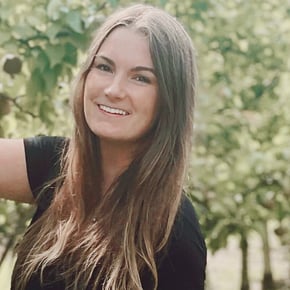Here is the third episode in the Sorcero miniseries on building great AI-powered life sciences products, a Mighty Capital podcast.
In this Sorcero miniseries, join host Sorcero CEO and Co-founder Dipanwita Das as she sits down with industry experts and business leaders to discuss how to build great AI-powered products for Life Sciences.
Sorcero Series Episode 3: Black Opal Ventures Founder on Building for Equity in Life Sciences Products
In this conversation, Sorcero CEO Dipwanita Das speaks with Dr. Tara Bishop, Black Opal Ventures Founder. They touch on a range of topics including Bishop’s venture capital mission: investing with an equity lens.
Dr. Tara Bishop is passionate about improving health and healthcare. In her almost twenty-year career as a physician executive, she has on-the-ground experience in delivery system improvement, health policy, payer operations, product development, value-based care, and start-ups.
Bishop is the founder and general partner of Black Opal Ventures, a venture capital firm that invests in companies that are transforming healthcare through technology.
Listen to the podcast on Apple, Amazon, and Spotify to dive into the discussion on equity and representation in Life Sciences.
In this episode, Dipanwita Das and Dr. Tara Bishop discuss:
1) The buyer-user dichotomy in life sciences markets
When building life sciences and healthcare products, one key consideration is the gap between buyers and users.
As Bishop shares, “In a hospital system, with many of the software and the technical products that are sold to healthcare systems, the users are nurses and doctors. These are the people on the front line who are actually doing the work, and these tools are meant to help them become more efficient.
The decision makers may or may not be monitoring these things on a daily basis or a weekly basis,” she continues. “But at the end of the day, there's some evaluation where they would say: Is this product actually working? Is it generating the ROI that we expected?”
Bishop emphasizes the importance of addressing both audiences when building products for this market. Consider with equal importance:
- How will this product benefit the end users?
- How will this product support the decision makers?
2) The potential of data to produce more personalized healthcare outcomes
When it comes to healthcare datasets, a common problem is that data is not representative of population diversity.
Could more data be the solution?
“Possibly,” says Bishop.
She explains, “We know that a lot of the data that is used for guidelines, that’s used in clinical trials, it’s not representative. It does not always include all groups. We're potentially getting results, seeing outcomes, and making recommendations based on biased samples. The more and more we integrate data, the more and more risk there is that we just continue to propagate the issue of lack of representation in all things healthcare.”
This poses major risks to health equity, but Bishop reminds us that there is a silver lining here.
“If we get to a point where, in fact, we can generate more unbiased data, we can actually generate more effective and more personalized decision making.
Whether it's to do a test or a treatment and base it on much larger sets of data, a lot of real world evidence — data that is sitting in the healthcare systems, payer systems, and with pharma companies – we might be able to use AI to improve and reduce the kinds of disparities that we see in much of the trial world in healthcare,” says Bishop.
3) Investing with an equity lens
In this conversation, Bishop shares about her diverse experiences as a physician, academic, entrepreneur, and now - a venture capitalist. In her current role, she places a main focus on equity when funding portfolio companies.
“Investing in venture capital isn't the most representative field,” Bishop emphasizes. “There aren't very many women in it. There aren't very many women of color in it. There's a lot of momentum and work being done to increase representation in venture capital. But we also feel that that's an important area where we can have impact, whether it's our ability to sit on boards, or to tap into our networks to bring in management teams or board directors who represent different parts of our demographics.”
Hear the full conversation Apple, Amazon, and Spotify by listening to the podcast today.
Black Opal Ventures Founder on Building for Equity in Life Sciences Products
About the Podcast
The Mighty Capital Podcast features interviews with industry experts and business leaders across technology, product and venture capital.
This Sorcero miniseries is hosted by CEO and Co-founder Dipanwita Das and centers on how to build great AI-powered products for Life Sciences.
This podcast is also made possible by Foley and Lardner, and the team at Products That Count who supported the podcast production.
 |
 |
 |
Stay Up to Date on the Podcast
• Each Tuesday, a new episode will be released. Be sure to follow Sorcero on LinkedIn and Twitter to stay up to date on all future updates & episodes 💬
• You can also get new updates sent straight to your inbox by subscribing to our Resource Center 📩
You Might Also Like:
• Listen to Sorcero Podcast Series Episode 2: IPG Health Medical Communications COO on Data, Representation, and Putting the Patient First
• Sorcero in The MSL Journal: What Could Faster Medical Insights Management Mean for Patient Outcomes?
• Discover the latest guides, trends, and resources for navigating AI Analytics and Insights for Life Sciences in the brand new Sorcero Resouce Center >> Subscribe today 📩
.png?width=300&name=Copy%20of%20Untitled%20Design%20(7).png)

